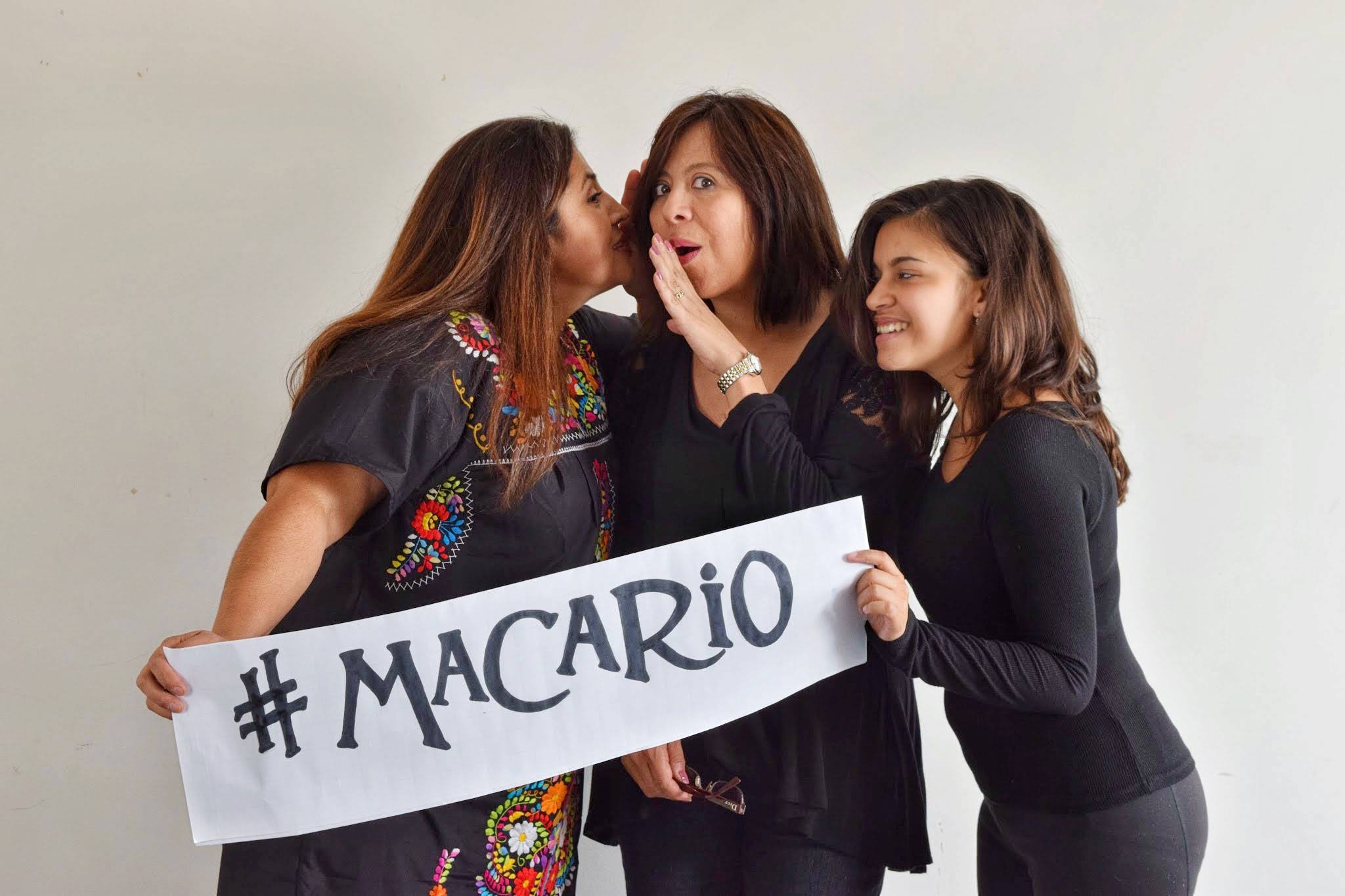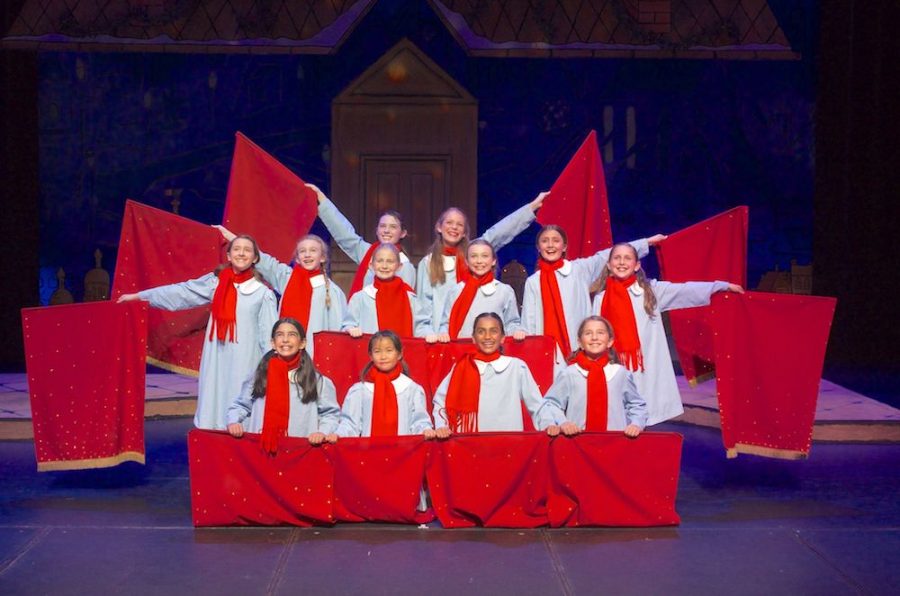Autrán has always had a love for theater, and theater companies in the community have allowed her to feed her passion. Autrán’s interest in drama began at the age of 13, when she began taking theater and acting classes while living in Mexico. She later studied theater in high school. However, when she moved to the U.S. after graduating, she knew little English and was not in the financial position to pursue drama. Instead, she decided to focus on school and work, putting her dreams on the backburner — at least for the time being.
“Life puts you in a situation sometimes where you have to make choices,” Autrán said. “So then, I said I’m going to stop theater for now and go focus on school, get a degree and maybe go from there. And I forgot about theater for many years.”
Still, theater never quite left her mind completely. Before coming to MVHS, she taught drama to students during the summer and would write small skits and plays for them to perform. But for many years, Autrán wasn’t acting herself. She sent her Spanish students to watch performances at Teatro Visión, a professional theater company in San Jose that performed plays in both English and Spanish, for five or six years before realizing that she wanted to be a part of it as well.

Despite going to numerous auditions for Teatro Vision and other nearby theater companies starting in 2010, Autran was not cast in any roles. She didn’t let these failures bring her down, however, as she already had a job as a teacher. Still, when she finally received a role in 2012, after a couple of years of trying, she was excited to return to theater.
“I felt good [when I was cast], that ‘Okay, there is room for me. Somebody wants me with my accent. It doesn’t matter the way I look or how old I am, it doesn’t really matter,’” Autrán said. “There is always something in theater for you.”
Over the last few years, Autrán said she has been able to perform with people of all ages in areas that are often lower income, such as east San Jose. She realizes that, although she appreciates the “fame” aspect, she enjoys being able to spread the arts and theater to children who may not otherwise have access to it. After the plays themselves, they often have Q&A sessions in which Autrán and her fellow cast members answer questions, often posed by children, about the play and how to get involved.
“[Acting] is not just to be happy about what you do and have a big ego, but you do it because you want to touch people too and also new generations, so lots of kids may be inspired by what they see, so it’s a little bit like teaching too,” Autrán said.
While working with young people in production, Autrán has realized that she forms a different relationship with her castmates than with her students. She said that while younger actors still talk to her with respect, she finds that her younger castmates are less reluctant to spend time with older adults. When she rehearses with her team, age doesn’t seem to matter and all are on the same platform.
“We have this common ground,” Autrán said. “We like theater. We like to perform. We all have the same interest. But we come from completely different backgrounds and theater brings us together. They don’t see me as a teacher, they call me María because we are all the same, treated equal or seen the same way.”
While Autrán noticed a difference in how younger actors interacted with her, senior Ben Pribe noticed a difference in the atmosphere when he performed in community theater versus school. Pribe, who performed at the California Theatre Center (CTC), a community theatre, found it to be more competitive, rather than when doing it with his friends for MVHS productions.
“It’s maybe a little more intense [than MVHS drama] just because everyone who’s there is more serious about theater,” Pribe said. “It can be a little intimidating, but you just have to get used to it.”
Although he only did a couple of plays with community theater, Pribe described that adjusting to the new environment was not difficult.
“If you don’t know anybody going in, then you have to make friends instead of just having friends from school,” Pribe said. “It’s not terribly different; it’s just a new community of people.”
Junior Savannah Stevens, an avid participant in community theater and another member of CTC, also experienced the shift, as the people who worked at her company were of varying levels.
“They had people who had done theater for [around] 20 seasons with them, which was pretty insane,” Stevens said. “Additionally, they would sometimes have people fly across country to do it. For the most part, this company was sort of a stepping stone onto other works.”
Stevens decided to invest her time into community theater for largely similar reasons as Autrán — a passion for acting. As a child with many emotions, Stevens found theater to be an outlet where she could truly express herself. With the encouragement of her mother, she attended community script readings and The Music School in Sunnyvale from a young age, which served as gateways for her long affiliation with theater.
“[Theater] really helped me as a dramatic child,” Stevens said. “But then I kind of became more shy and bookish [as I got older], and theater was the only place that I felt like I could really express myself and get out sort of the many emotions that [I] constantly felt.”
From fourth grade until the summer of 2017, Stevens had done work with CTC, which produced many retellings of classic fairy tales during the weekdays for young audiences before it went out of business. During her time there, she played various roles, such as Lady MacBeth in “MacBeth” and Amy Lawrence in “The Adventures of Tom Sawyer.” Since she has been with the same company for so long, Stevens has been able to experience the evolving expectations for actors as they grow older.
“When you’re younger, it tends to be more of a ‘Can you be loud and memorize lines’ sort of situation,” Stevens said. “Whereas [when you’re older] they really want to see development and acting not only when you’re participating, but also when you’re more off to the sideline in a scene.”
Stevens has found that one difference between drama at MVHS and community theater is familiarity with the actors. Although she is usually among peers and close with the people around her at MVHS productions, since they attend school together, she is less familiar with the actors at CTC, which range from professionals to small children. However, her exposure to different people in community theater has given Stevens the opportunity to make close connections with many talented actors and professionals. She believes that the talents within community theater who have helped her expand her passion in acting are often underlooked.
“It’s just amazing getting to know all these people and learning from them and growing from them and being able to apply the ways that you’ve learned little things in theater to the big scope of the world,” Stevens said.
Autrán also appreciates the opportunities theater companies have given her in rekindling her passion for acting. Although acting in these productions along with being a teacher can be time-consuming and exhausting, she has felt the need to continue acting ever since she first joined the company.
“There are things that you’re passionate about and I think it’s important [to continue them] because work will keep you busy, but if you don’t do things that make you feel alive or that you’re passionate about, then life is not worthwhile living,” Autrán said.







